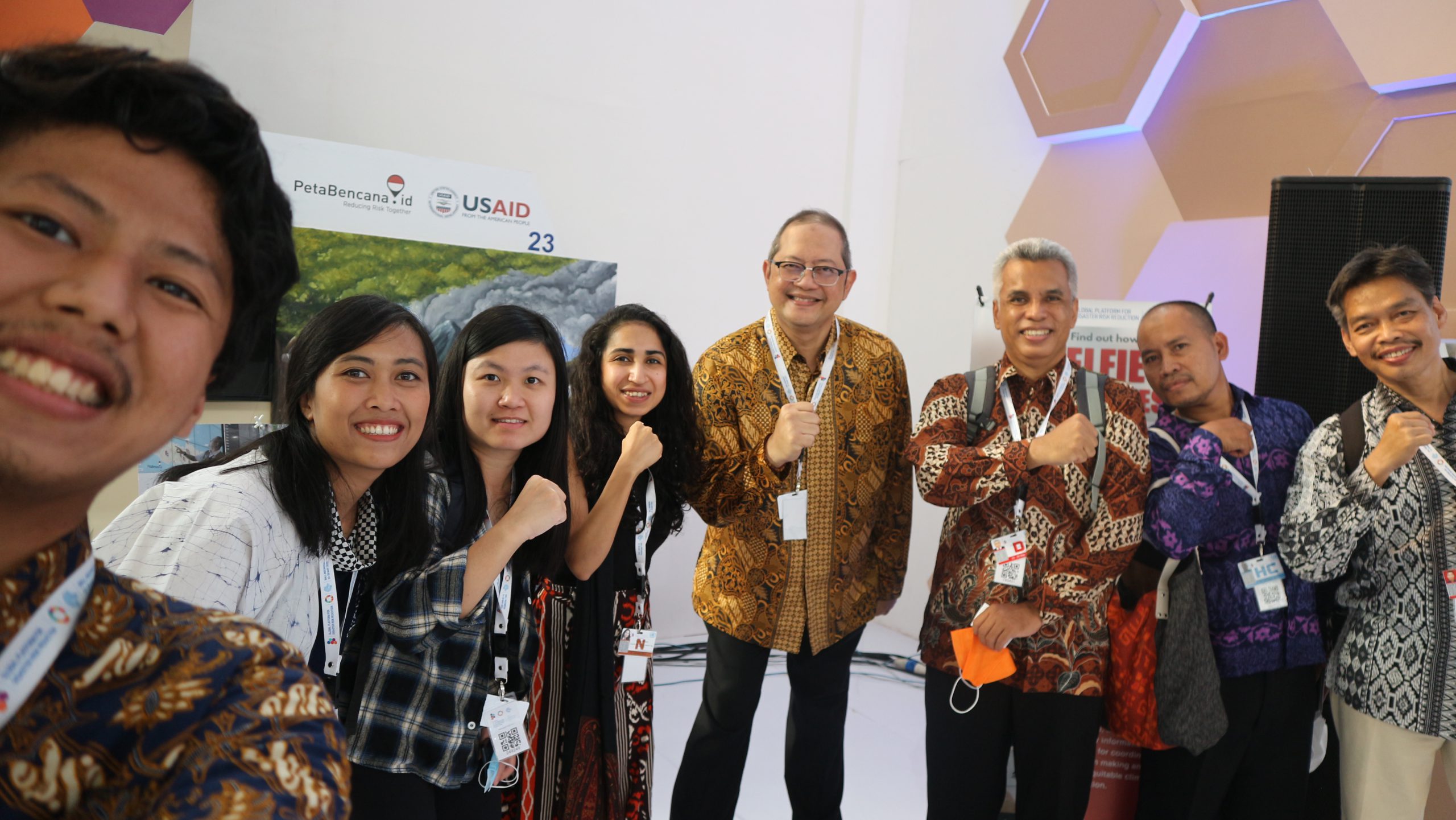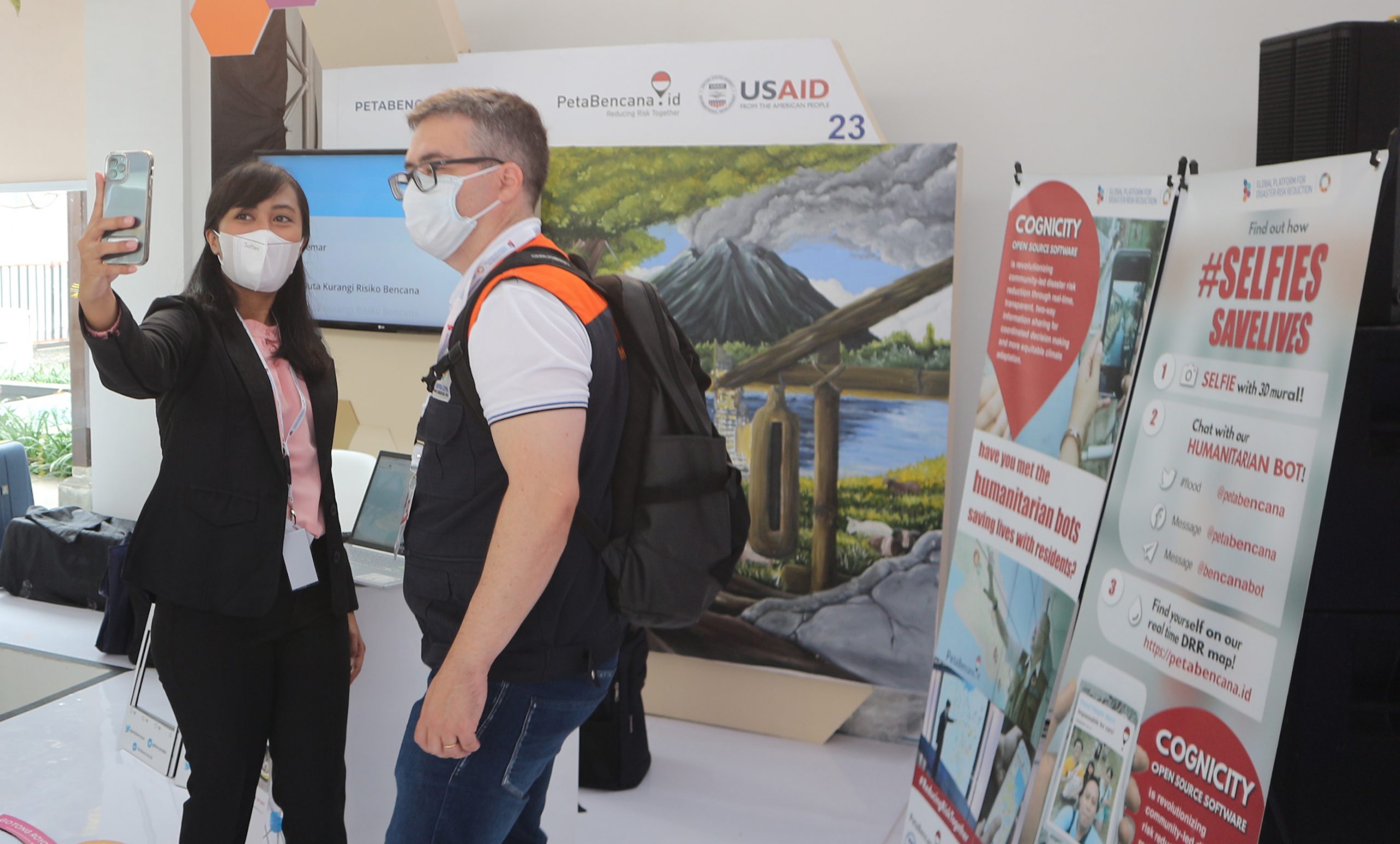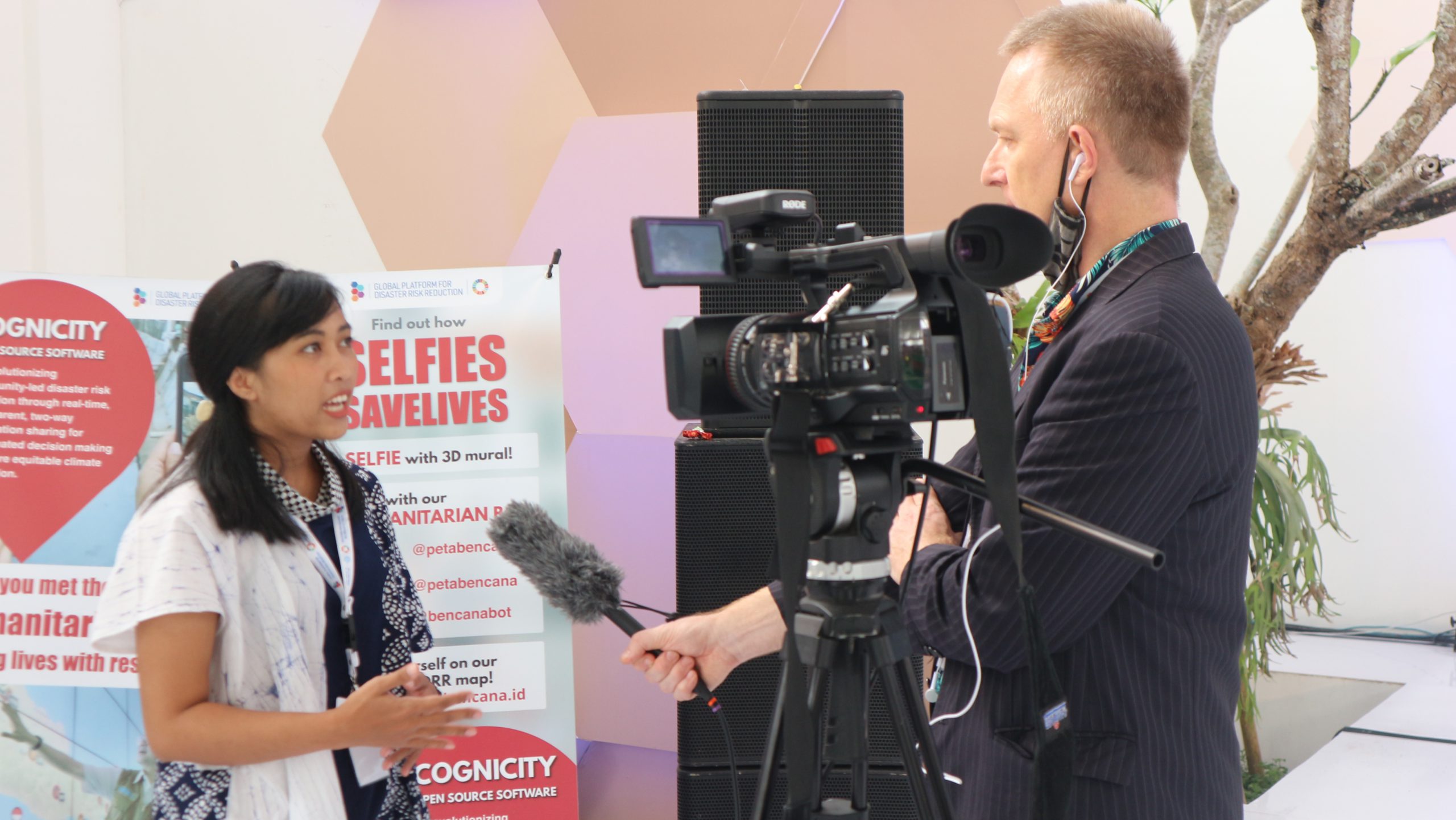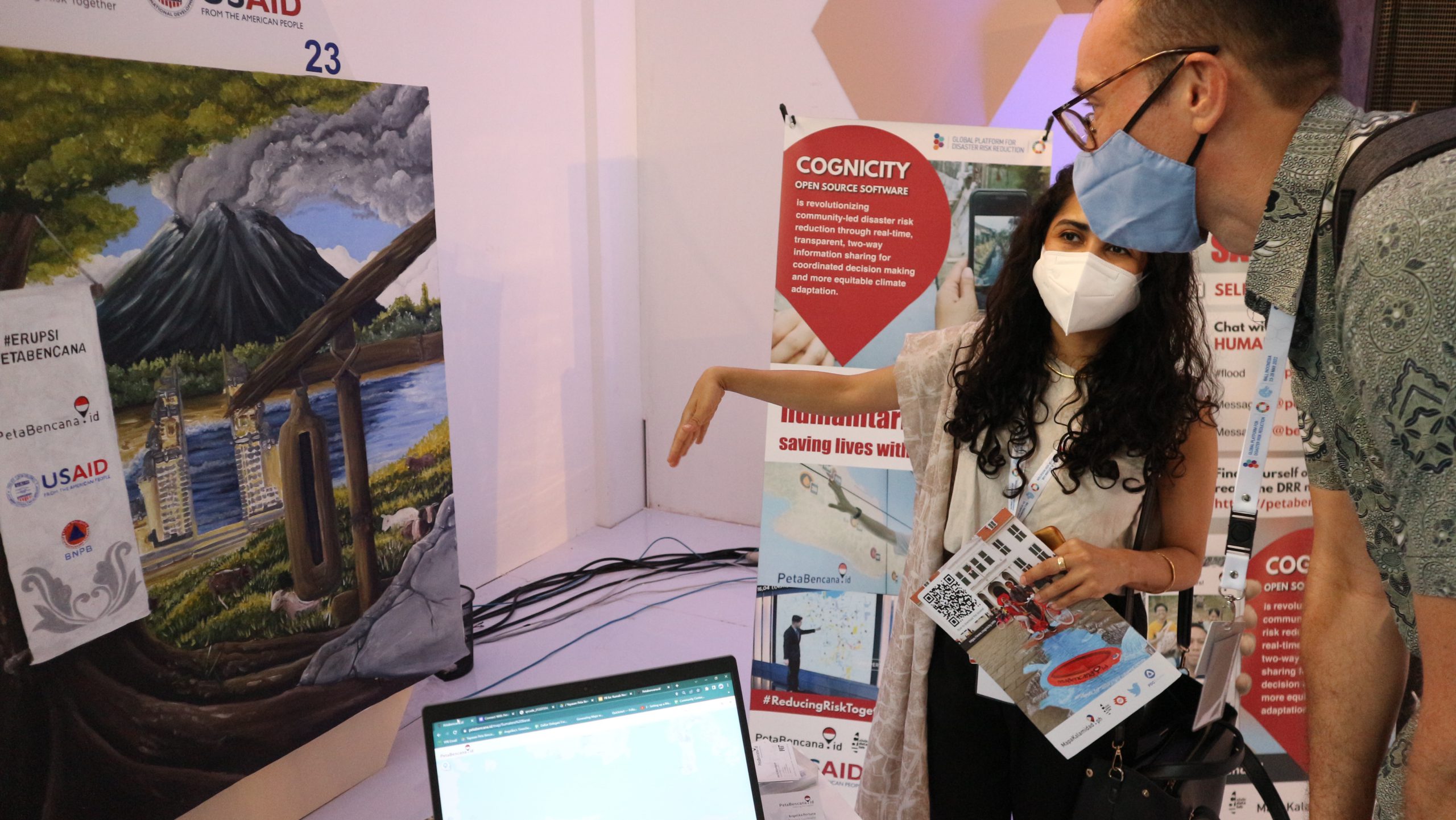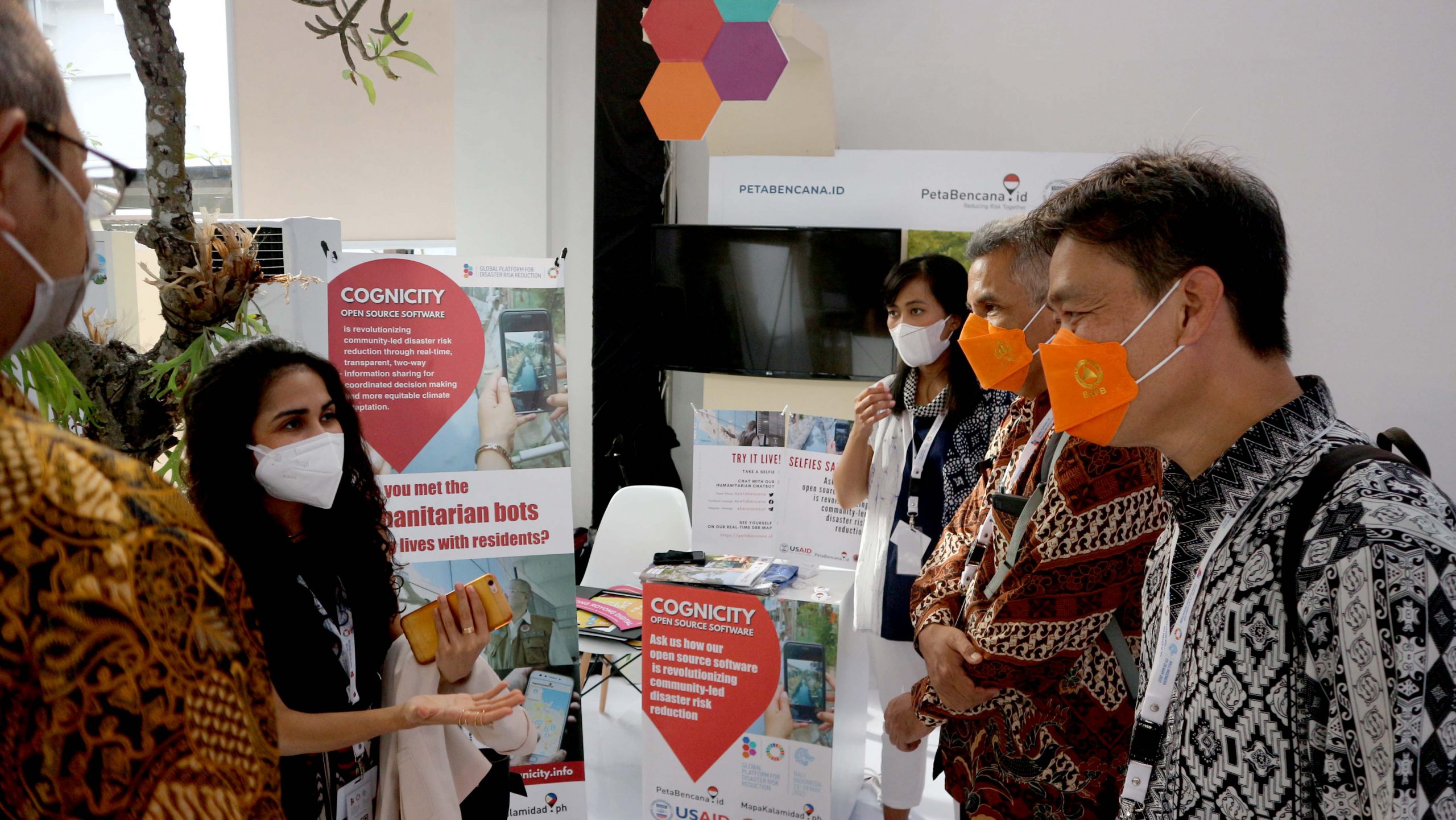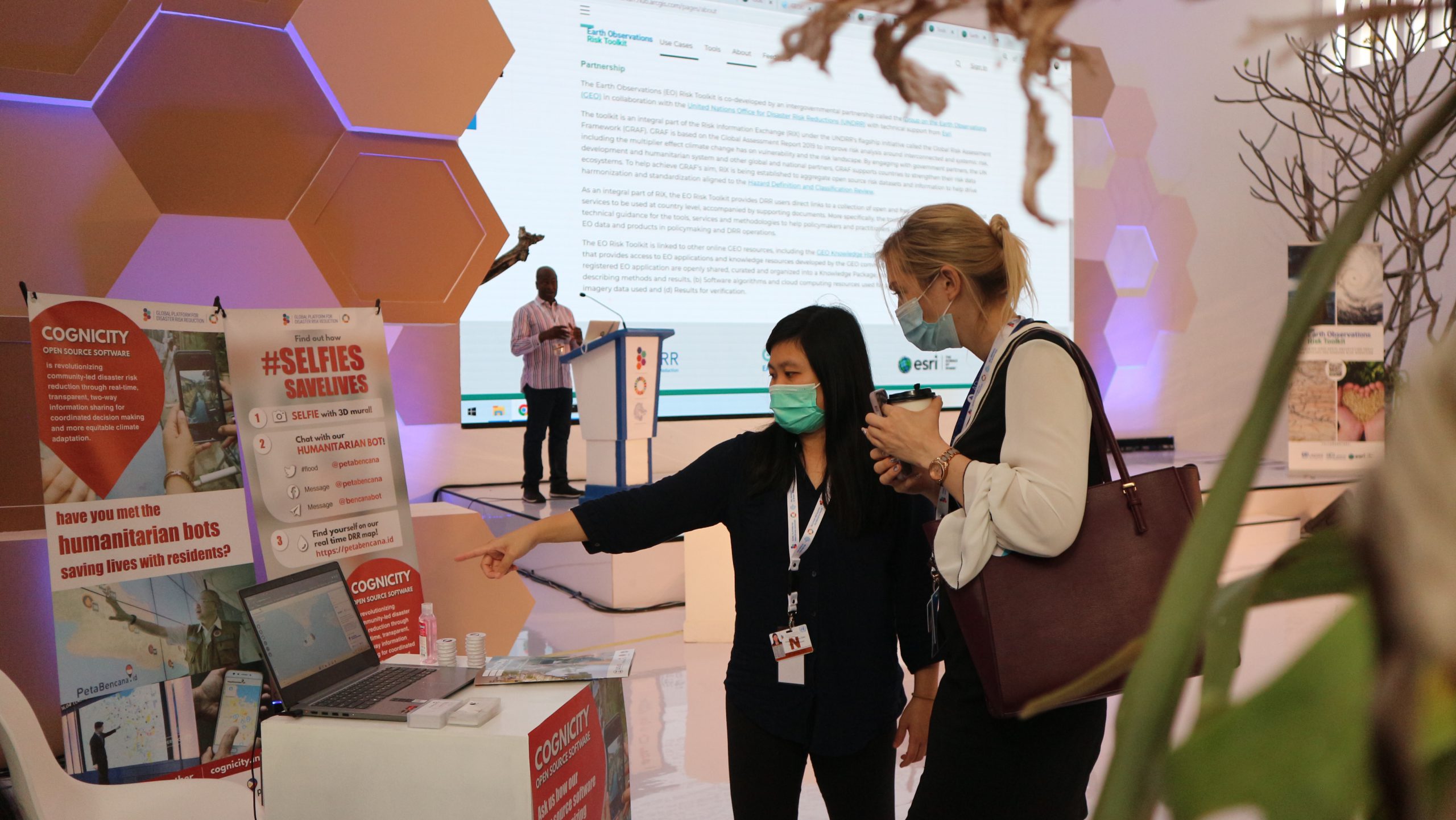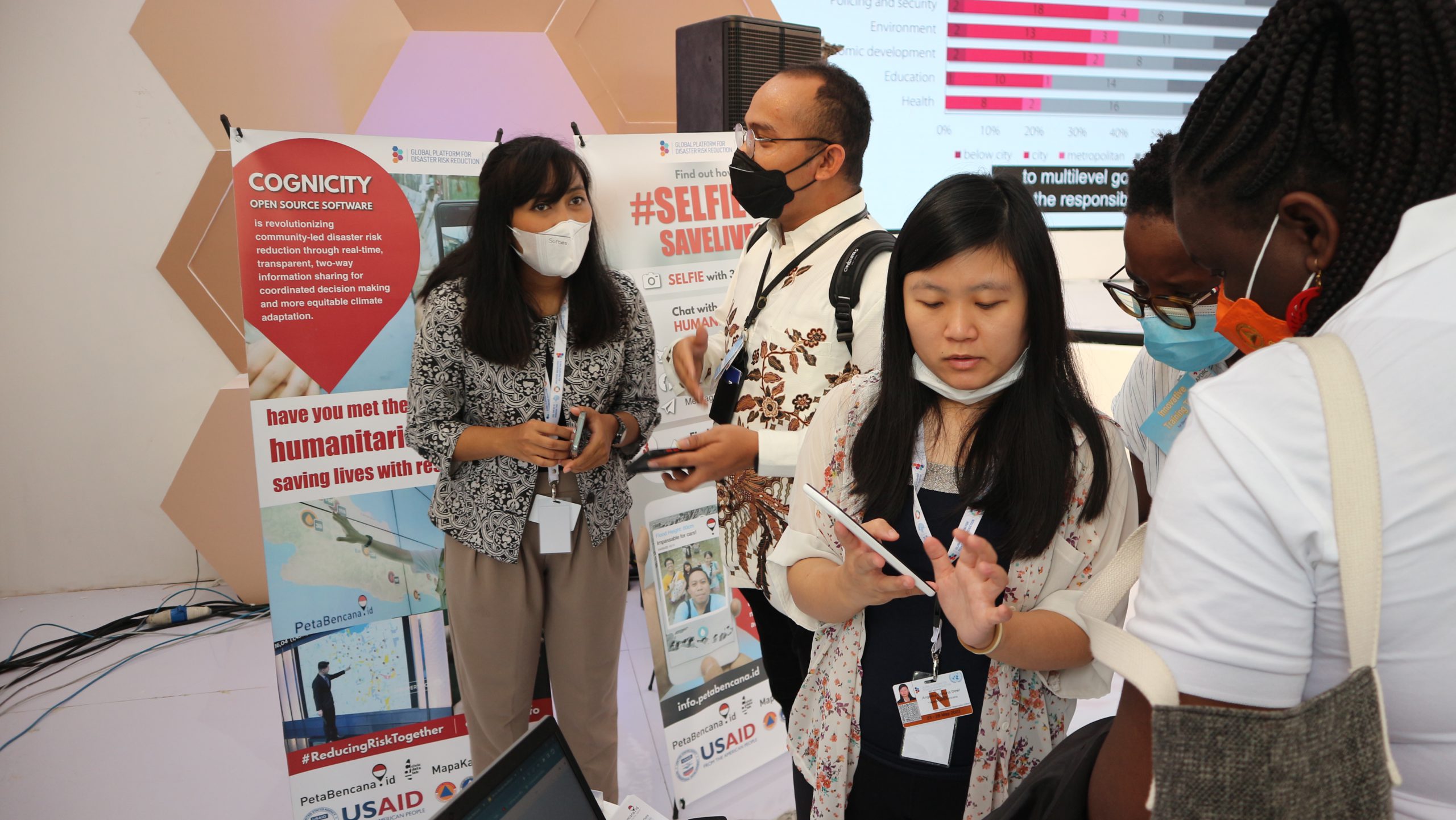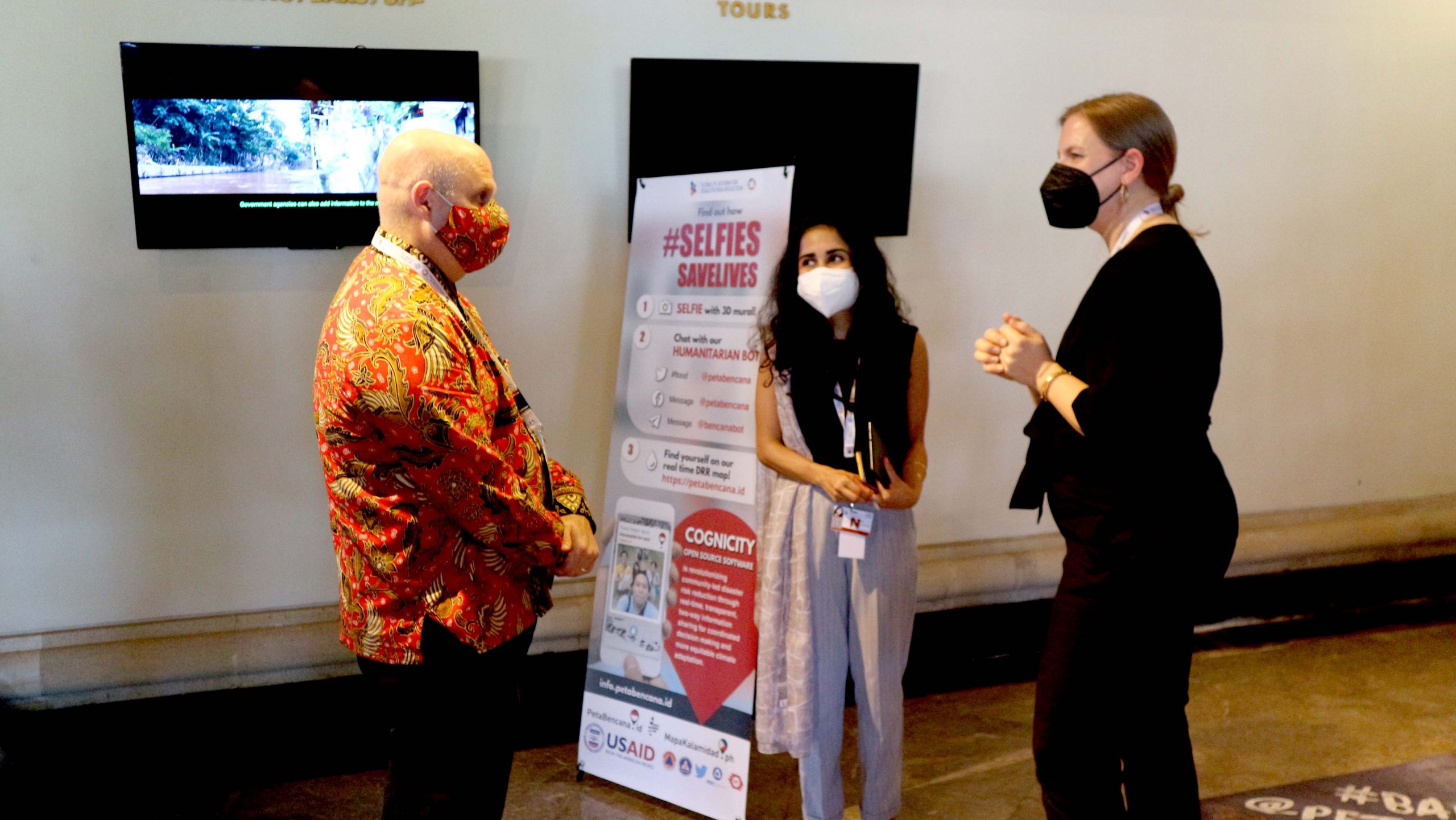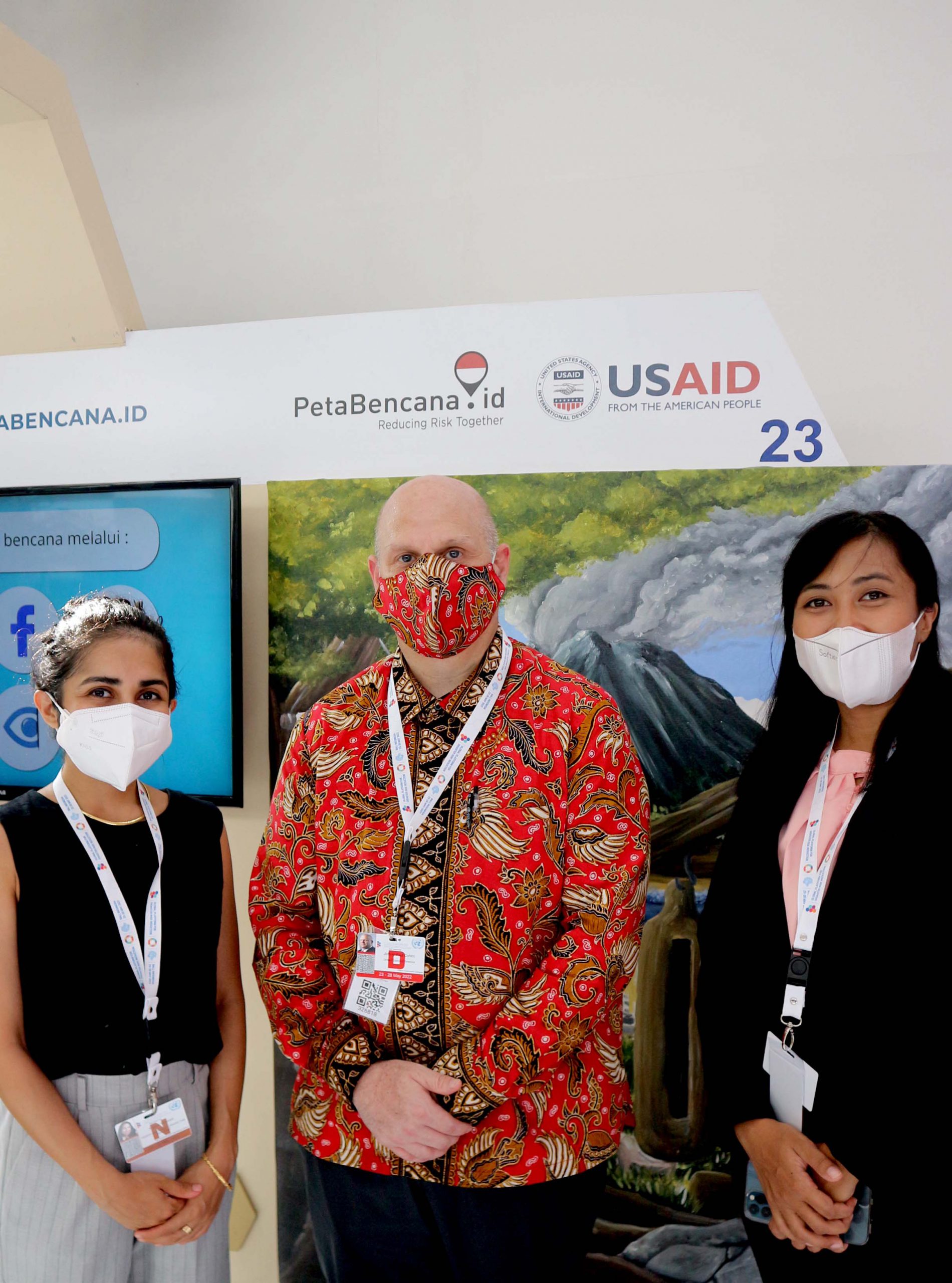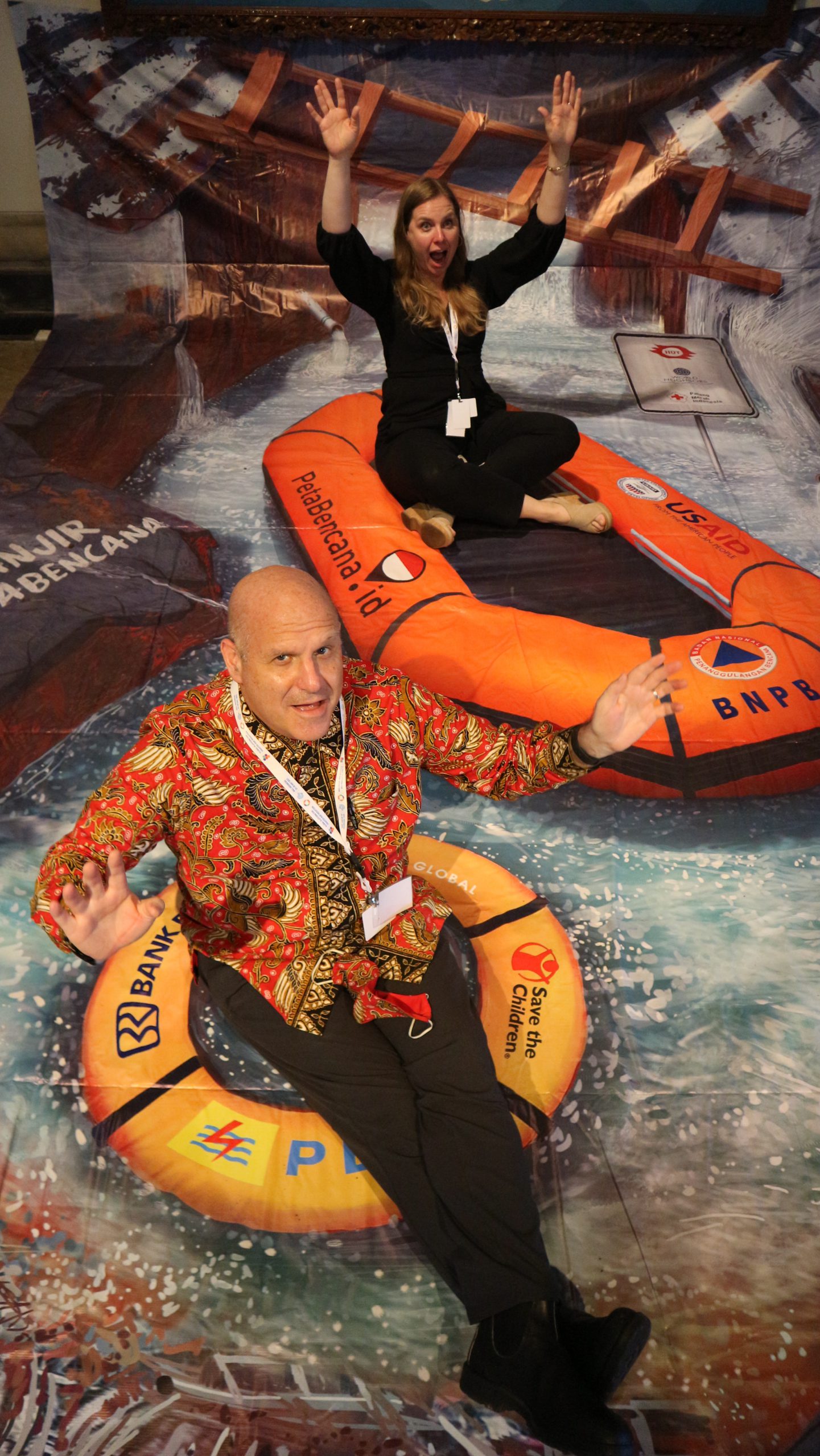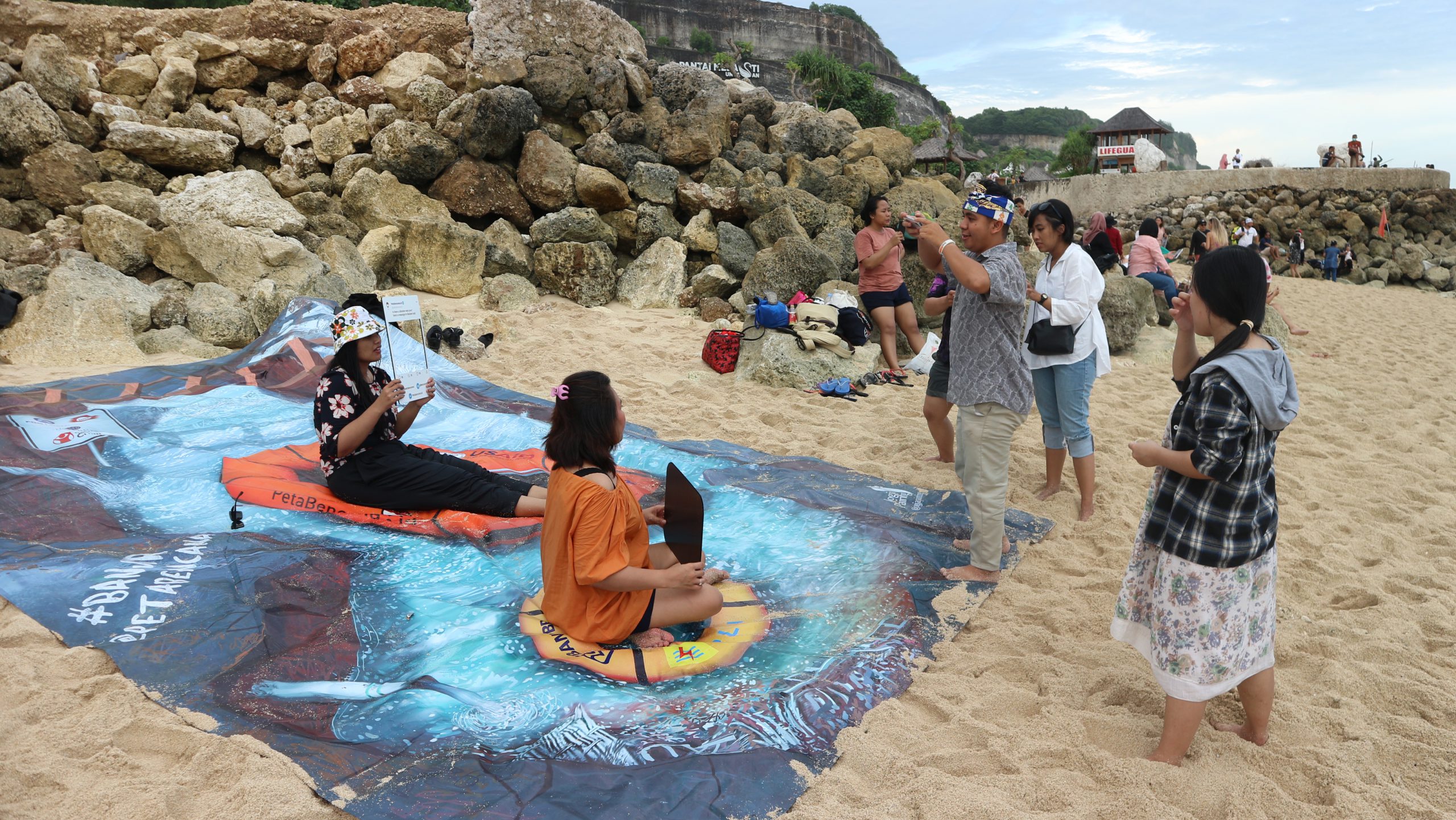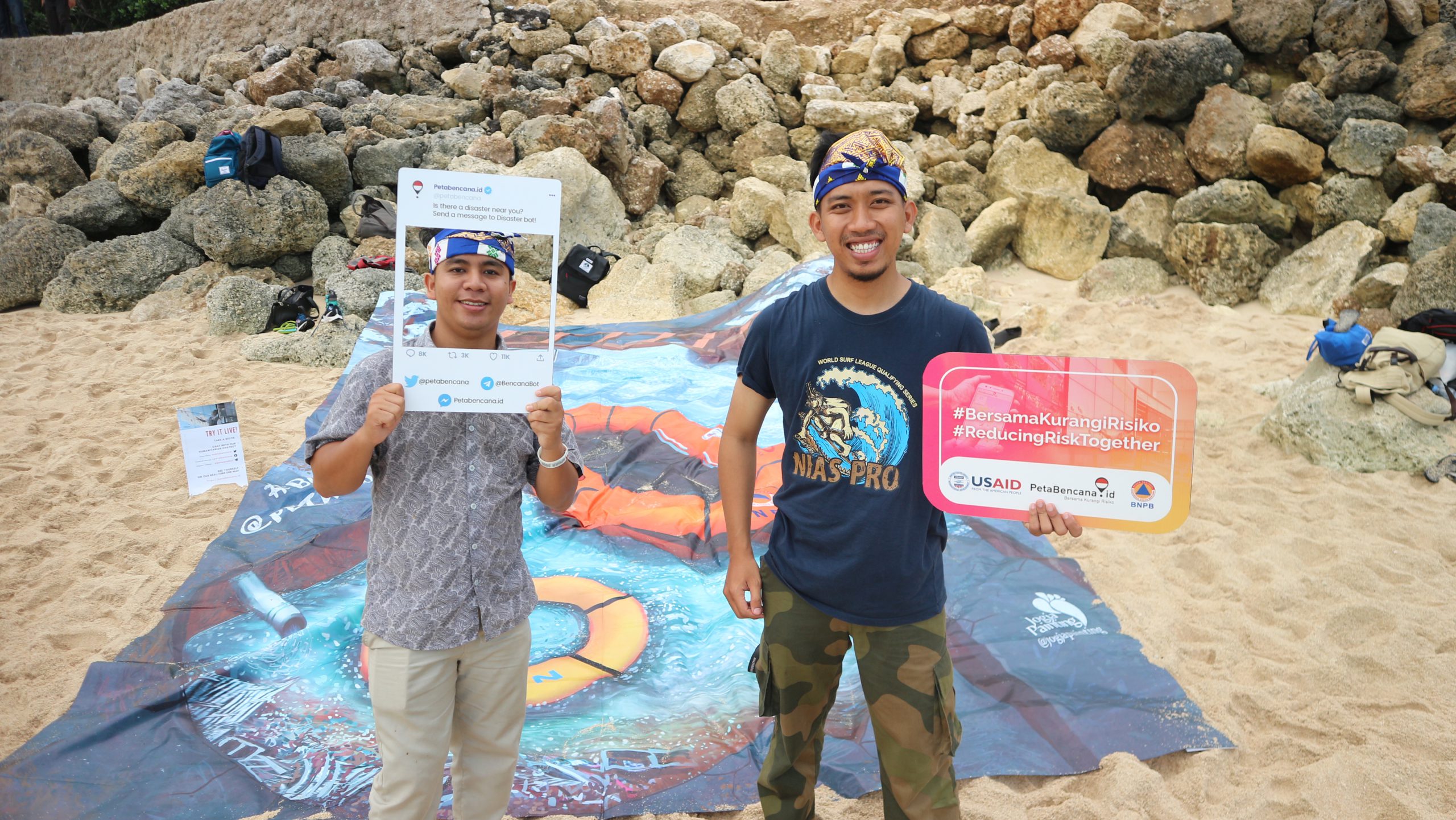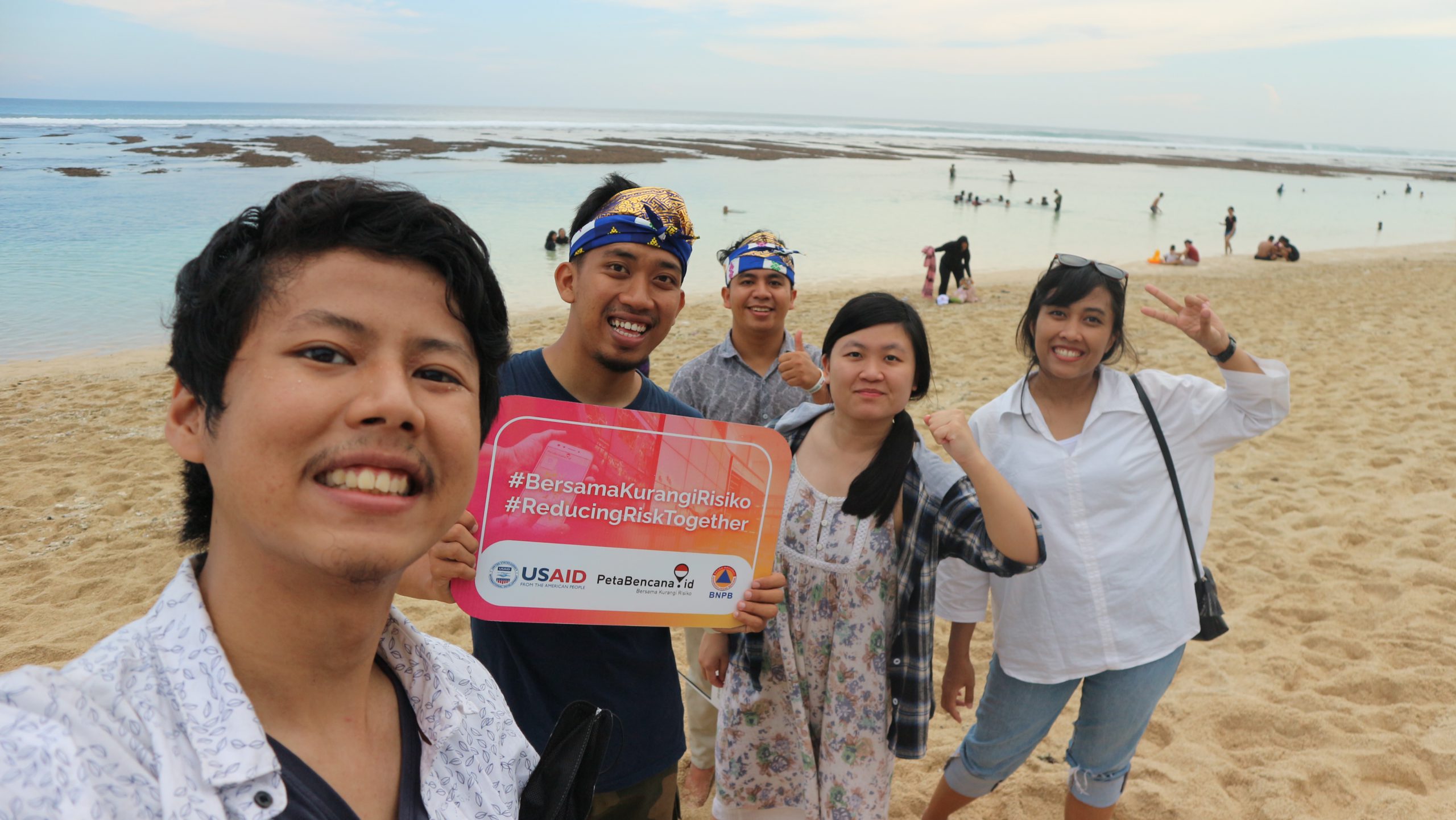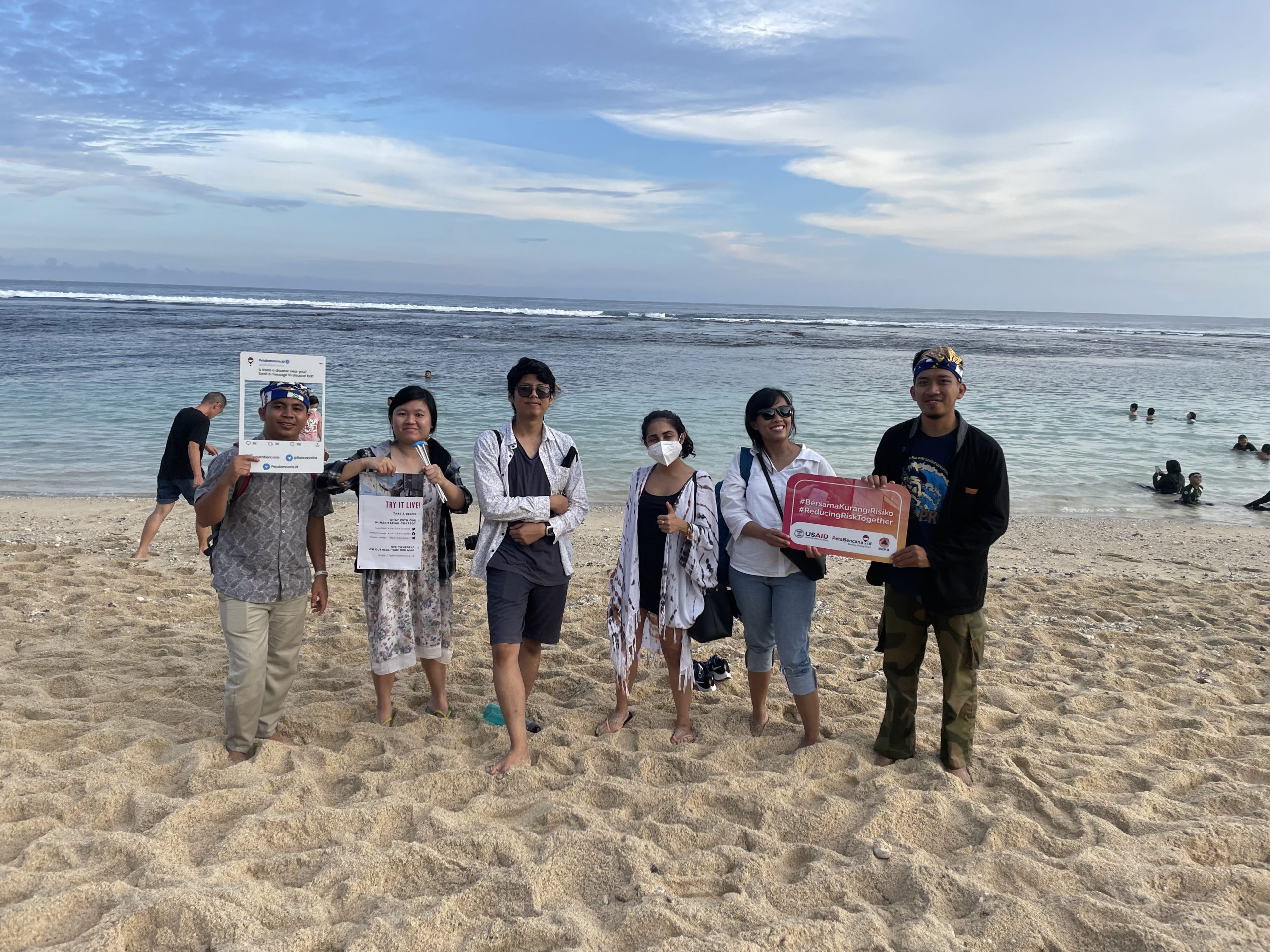The 7th Session of the Global Platform for Disaster Risk Reduction (GPDRR) was officially inaugurated by Indonesian President Joko Widodo along with UN Deputy Secretary General Amina Mohammed, President of the 76th Session of the UN General Assembly Abdulla Shahid, UN Resident Coordinator for Indonesia Valerie Julliand, and the special representative of the UN for disaster risk reduction, as well as several Indonesian officials on May 25, 2022. Organized in a hybrid format, the Global Platform had over 6300 participants from a total of 185 countries.
During his opening remarks, President Joko Widodo encouraged the international community to enhance collaborative cooperation in disaster risk management, emphasizing the need for strengthened risk reduction culture and education, investment in science and technology, climate and disaster resilient infrastructure, and the implementation of global commitments.
As the main multi-stakeholder global forum to assess and discuss progress, share knowledge, and identify gaps in the implementation of the Sendai Framework for DRR 2015-2030 (a global, non-binding agreement, adopted in 2015 at the Third UN World Conference on DRR in Sendai, Japan) the GPDRR provides a platform for reflection, evaluation, and commitment to more ambitious efforts for inclusive disaster risk reduction, based on the experience of practitioners and policymakers, as well as recent reports such as the IPCC Sixth Assessment report.
Co-chaired by H.E. Prof. Muhadjir Effendy, Coordinating Minister for Human Development and Cultural Affairs of the Republic of Indonesia, and Ms. Mami Mizutori, Special Representative of the United Nations Secretary-General for Disaster Risk Reduction, the forum acknowledged the insufficiency in investment and progress in disaster risk reduction so far. According to the co-chair summary, “the Sustainable Development Goals are not on track” and “disaster-related economic losses continue to rise.” Findings indicate that less than half of the countries reporting against Sendai Framework targets indicate having accessible and actionable disaster risk information, with effective disaster risk management often hindered by siloed approaches.
As part of the core agenda of the GPDRR, the plenaries of the midterm review of the implementation of the sendai framework for disaster risk reduction, are an important contribution which concludes at a high-level meeting of the UN General Assembly in May 2023. The plenaries invited participants across different sectors to engage in a moderated discussion to offer their interventions, the results of which would contribute to the adoption of a political declaration at the UN General Assembly in 2023, which will inform further implementation of the Sendai Framework.
The first mid-term plenary was co-chaired by Lieutenant General Suharyanto, head of the National Disaster Mitigation Agency (BNPB), who pointed out the lack of integration in disaster risk reduction financial planning.
Yayasan Peta Bencana was part of this first meeting of government, non-government, and UN agencies, and civil organization representatives to evaluate the application of the Sendai Framework. Director of Yayasan Peta Bencana, Nashin Mahtani, delivered an intervention calling for the support of open source technology and tools for climate emergency within a Planetary Health Framework as the evolution of and complement to the Sendai Framework.
Drawing attention to vaccine patenting as a failure to respond to the global covid-19 pandemic, Yayasan Peta Bencana’s statement iterated the need for open source tools in addressing the climate emergency. “Sustainable development must recognize the right for all countries to have equal access to the scientific knowledge and tools that are needed to adapt and mitigate risk. Open source tools foster invaluable lateral exchange, and enable us to address global challenges collectively, making far more effective use of investments and resources. Investments for climate adaptation must be, and remain, open source to enable equitable, democratic participation and increased cooperation on technology development, transfer, and maintenance,” said Mahtani.
Yayasan Peta Bencana’s intervention also called for a more comprehensive repricing of risk, accounting for externalities of commercial activities on biodiversity and wellbeing, calculated for at least the next seven generations. Importantly, the intervention stressed the need to develop the parameters of risk repricing with indigenous and local communities, with risk assessments placing local knowledge at the forefront.
Other interventions were delivered by the Vice Minister of Economy, Planning and Development of the Dominican Republic, Executive Director of National Disaster Management Agency of Liberia, Director General for the National Center for Disaster and Environmental Emergency Mangement of Guinea, Swedish ambassador to Indonesia, Director of the Office of Civil Defense from the Philippines, Director General for Risk and Emergency Management from Ecuador, Director Generaal of Emergency Management Policy and Outreach of Canada, Permanent Representative to the United Nations in New York, Deputy Director General of JICA, Deptury Director of Disaster Prevention Division, Ministry of Labor and Social Welfare from Lao People’s Democratic Republic, Head of Strategic Development of the National Commsion for Risk Preventiaon and EMergency Care from Costa Rica, Executive Secretary of National Coordination for Risk REduction of Disasters from GUatemala, Executive Director of the Territorial Planning and Civil Protection Office at the Province of Potenza from Italy, First Assistant Secretary at the Humanitarian and Partnerships Division at teh Department of Foreign Affairs and Trade from Australia, Head of Department of Risk Assesment and Planning of the GOvernment Centre for Secutrity from Poland, Senior Engineer at the National Agneyc for Research and Innovation from Indonesia, Director of the National Risk Management Commission from Ethiopia, among several others. During the interventions that were delivered by a diverse range of stakeholders, there was a resounding call to increase commitment to socially transformative outcomes including strengthening the meaningful participation of at-risk communities, women and girls, and youth, as well as the need to address and acknowledge barriers and biases in order to frame appropriate enabling policies and programmes.
During the third mid-term plenary, addressing the theme of timely multi-lateral risk governance built upon diverse knowledge systems, Director of Yayasan Peta Bencana, Nashin Mahtani, delivered an intervention calling for commitment to involve all residents as equal agents in the co-management of risks.
The intervention emphasized the need to involve local residents as co-designers of risk management systems. “The scale of challenges we face today demand that we increase the agency of every single resident to participate in their own disaster recovery efforts. We must provide accessible tools for people on-the-ground to share their local situational knowledge, and harness collective intelligence to support complex crisis management,” Mahtani said.
The co-chairs summary of the GPDRR 2022 resounded many of the concerns expressed at the midterm plenary, iterating the need for systemic transformation in governance and financing, holistic integration of disaster risk reduction across all sectors, the critical need to break silos and disaggregated data including through greater interoperability across systems, increased commitment to community-led disaster risk reduction including emphasis on communication and education.
The co-chairs summary stated: “Recovery and reconstruction are most successful when they are community-driven, and address inequalities through gender responsive and human-rights based approaches. People are affected differently by disasters. This calls for a participatory and human rights based approach to include all under a principle of “nothing about us without us” in disaster risk reduction planning and implementation. There should be a recommitment to community engagement and to disaster risk reduction that is community-driven and supports existing local structures.”
Convened at the midpoint between COP 26 and COP 27, the Global Platform acknowledged that current emission levels far exceed their mitigation, resulting in an increase in frequency and intensity of catastrophic events, threatening the achievement of the 2030 Agenda. The Global Platform called upon governments to honor the commitments made in Glasgow to drastically enhance financing for and support to adaptation. “There is an urgent need to scale-up disaster risk reduction as part of the solution to address the climate emergency, while raising and achieving the climate ambition,” said the co-chairs.
Yayasan Peta Bencana is committed to enabling democratic forms of participatory climate adaptation and risk reduction, including providing the necessary tools, knowledge exchange, and infrastructure to address the climate emergency collaboratively. We are honored to have been one of two local NGOs invited to exhibit our work at the “Innovation Platform” agenda of the GPDRR. These innovations were selected by the UN to provide input for the implementation of the UN Secretary General’s Vision for “Our Common Agenda”. The Innovation Platform showcased the software underpinning PetaBencana.id, and its design and development as a process emerging from multi-stakeholder partnerships including with USAID Bureau of Humanitarian Assistance, BNPB, Office of Civil Defense, NDRRMC, Pacific Disaster Center, Humanitarian Open Street Map Team, Civic Data Lab, Twitter, Mapbox, PasangMata, and all residents reducing risk together. The exhibit at the “Innovation Platform” also featured other instances supported by our open source software in the region including MapaKalamidad.ph (Philippines), SmartSaigon (Vietnam), and BreadLine by HongKong FoodWorks.
During a session titled “No Districts Left Behind: Meeting At-Risk Residents Halfway for Next Generation DRR in Southeast Asia”, Alvin Gus, Communications and Public Relations Coordinator at Yayasan Peta Bencana, and Angelika Fortuna, Project Research Coordinator at Yayasan Peta Bencana, drew from our experience in increasing public participation in disaster risk reduction to share the core principles of digital gotong royong as a trajectory to address core themes presented at the GPDRR.
Yayasan Peta Bencana also had a chance to meet with visiting delegates from our partners at the USAID Bureau of Humanitarian Assistance (BHA), including Ms. Sarah Charles, Assistant to the Administrator of USAID’s BHA; Mr.Jeffrey Cohen, USAID Mission Director Indonesia; Mr. Harlan Hale, Regional Advisor USAID BHA; Jessica Doxtater, Program Officer USAID BHA.
As Indonesia hosts two major global forums this year, including the GPDRR and the G20 Summit in November, Yayasan Peta Bencana harnessed this convening to kick start a “disaster-prepared hospitality” program. As an amplification to the official GPDRR events, we partnered with official hotels including Nusa Dua Beach Hotel & Spa, Ibis Styles Benoa Bali, Amaris Hotel, and Novotel. Employees of partner hotels were trained in disaster risk reduction including on how to view and share real-time disaster information on PetaBencana.id. Hotel partners installed PetaBencana’s 3d disaster-themed murals in their lobbies, joining in the #SelfiesSaveLives campaign to inform visiting delegates on how PetaBencana.id is used during disasters, and as an example of community-led disaster risk reduction. Hotel partners also displayed the film, “The Same River Twice”, produced by Yayasan Peta Bencana to narrate the story of how open source tools are revolutionizing inclusive forms of disaster risk reduction in the region.
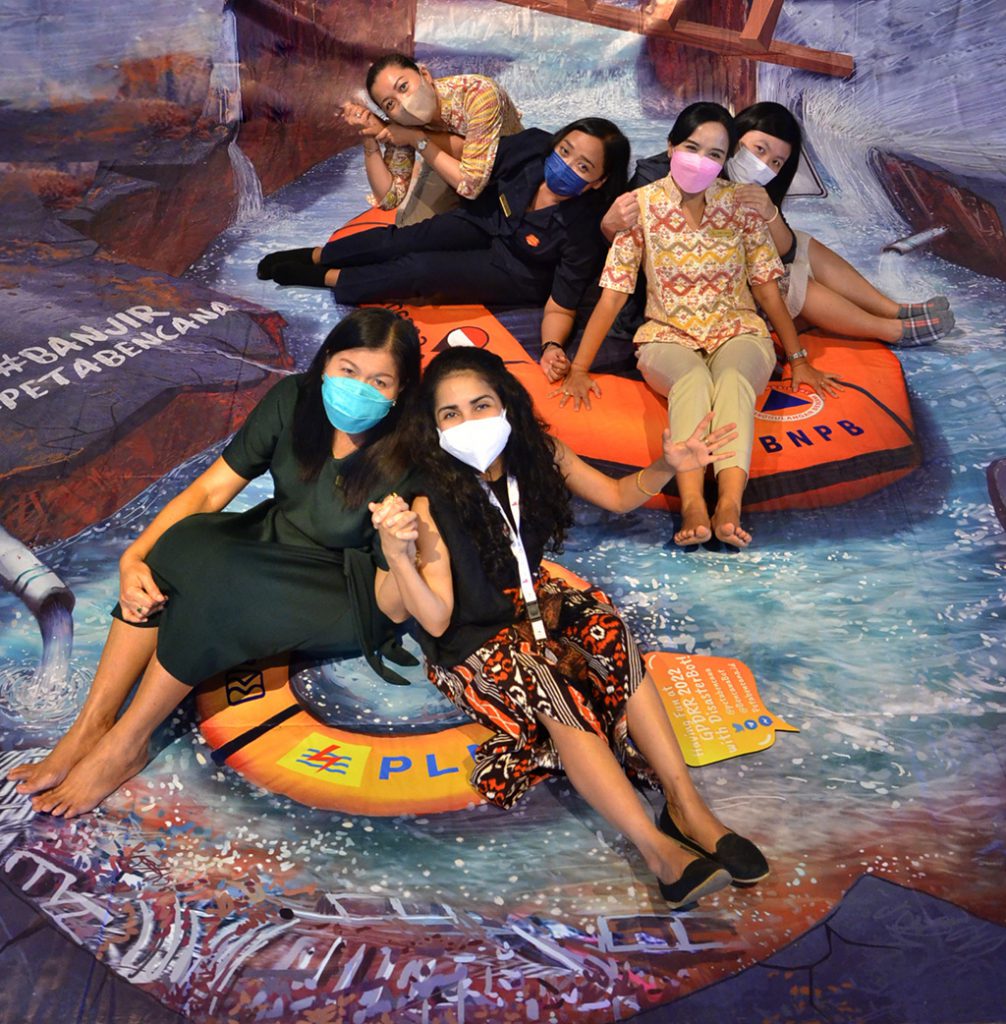
Yayasan Peta Bencana was honored to also be joined by Bali-based Disaster Risk Reduction Youth Ambassador, Lestari Wulandari , and her students from SMAN 1 Abang, and to have been able to exchange stories with our top trainers, Topandra and Muhammad Arinda, who traveled from Bangka Belitung to participate in the week’s activities.
We thank all our partners for their support in this shared journey to #ReduceRiskTogether, and remain ready to partner and support efforts for inclusive forms of disaster risk reduction.
